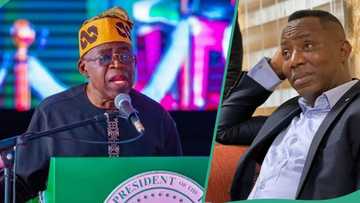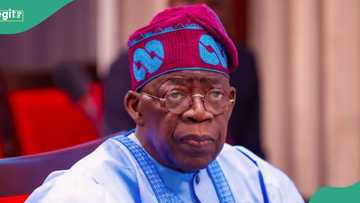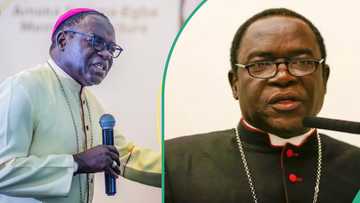Genocide: Senior Vatican Cardinal Gives Official Stand on Alleged Targeted Christian Killings
- Vatican Secretary of State Cardinal Pietro Parolin says Nigeria’s violence is not genocide against Christians but a wider crisis affecting Muslims too
- Bishop Matthew Hassan Kukah urges the international community to support Nigeria’s peace efforts rather than label it a persecutor of Christians
- Kukah hails President Tinubu’s inclusive leadership while calling for constitutional action against the enforcement of Sharia law in northern states
Vatican Secretary of State, Cardinal Pietro Parolin, has dismissed claims that the security situation in Nigeria amounts to genocide against Christians, noting that Muslims have equally suffered from widespread violence and extremism.
The prelate made the clarification in Rome during the unveiling of the Aid to the Church in Need (ACN) 2025 World Report on Religious Freedom.
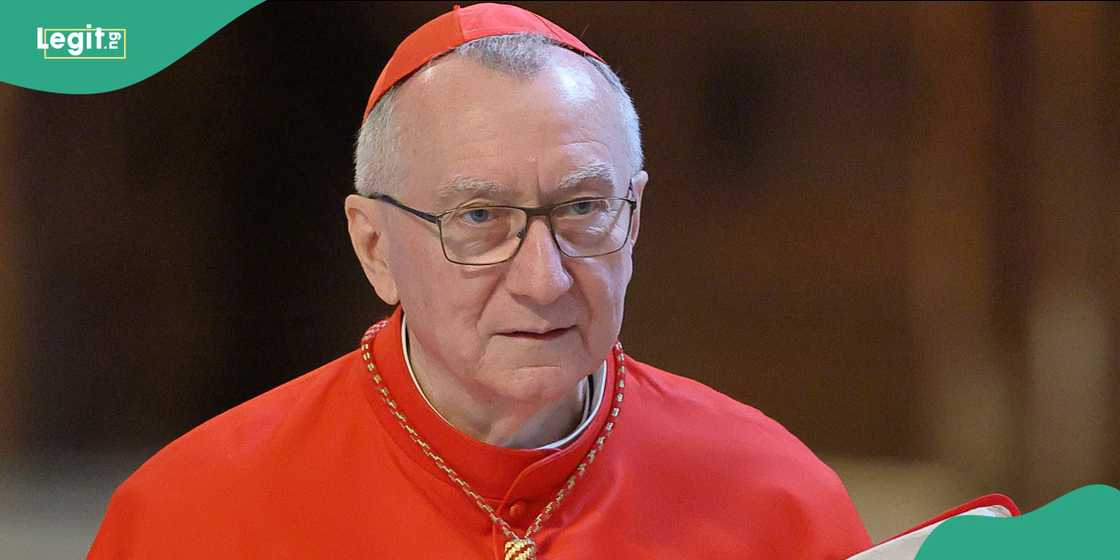
Source: Getty Images
His remarks come amid growing international debate triggered by Vice President Kashim Shettima’s speech at the United Nations General Assembly in September, where he condemned civilian casualties in Gaza and called for a two-state solution.
Conflict rooted in social and economic causes
Parolin warned against framing Nigeria’s security crisis as a religious war, explaining that much of the unrest arises from social and economic pressures rather than faith-based hostility.
“It is not a religious conflict. Much of the violence stems from social causes such as land disputes between herders and farmers in the North-Central region. We should also recognise that many Muslims in Nigeria are themselves victims of this same intolerance. These are extremist groups that make no distinctions in pursuing their goals. They use violence against anyone they see as an opponent,” he said.
His comments followed renewed Western advocacy that labelled ongoing killings as Christian persecution.
One such call came from American security entrepreneur Eric Prince, who urged the Vatican and global Christian leaders to support a private Christian army to “protect the Christian community in Nigeria.”
Kukah calls for balanced international response
Also speaking at the report launch, Bishop Matthew Hassan Kukah of the Sokoto Diocese advised against re-designating Nigeria as a “Country of Particular Concern” over alleged religious persecution. He argued that such a move could hamper interfaith reconciliation efforts.
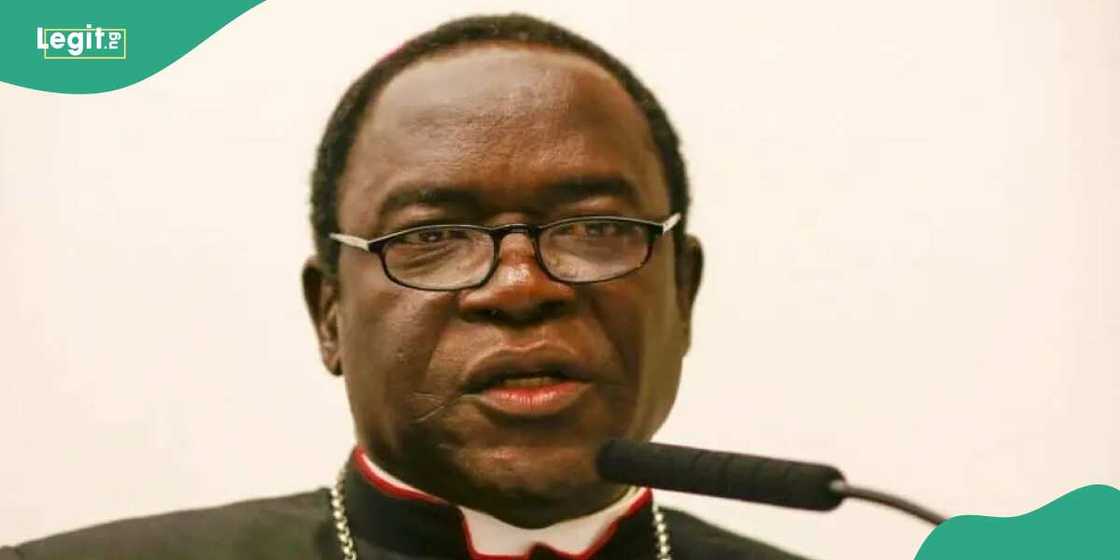
Source: UGC
While acknowledging the country’s worsening insecurity, Kukah said the violence cannot be reduced to religious motives alone.
The bishop admitted that some communities face near-genocidal conditions due to government failure to ensure safety but maintained that both Christians and Muslims are victims of a weakening state structure.
He criticised former President Muhammadu Buhari’s administration for deepening divisions, describing it as “the worst phase in interfaith relations.” Kukah, however, praised President Bola Tinubu for fostering inclusiveness through diverse appointments that, in his view, reflect fairness and religious balance.
Citing the Global Terrorism Index Report 2025, he noted a 37 percent drop in attacks last year but urged the government to strengthen constitutional adherence, particularly regarding the enforcement of Sharia law in northern states.
“The President should go to court to have the adoption of Sharia law declared unconstitutional. The secular state anticipated by the Constitution must be enforced,” he said.
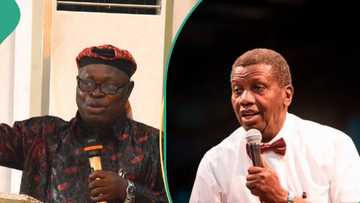
Read also
"200 churches were destroyed": MURIC reacts to claim of Christian genocide in northern Nigeria
US speaks on alleged genocide against Christians
Earlier, Legit.ng reported that the United States had denied allegations of an ongoing genocide against Christians in Nigeria, insisting terrorism affects both Christians and Muslims.
US envoy Massad Boulos said terrorist attacks in Nigeria cut across religion and ethnicity, stressing that Boko Haram and ISIS have killed more Muslims than Christians.
Boulos commended President Tinubu’s administration for improving security and urged Nigerians to avoid framing violent conflicts as religious crises.
Source: Legit.ng


